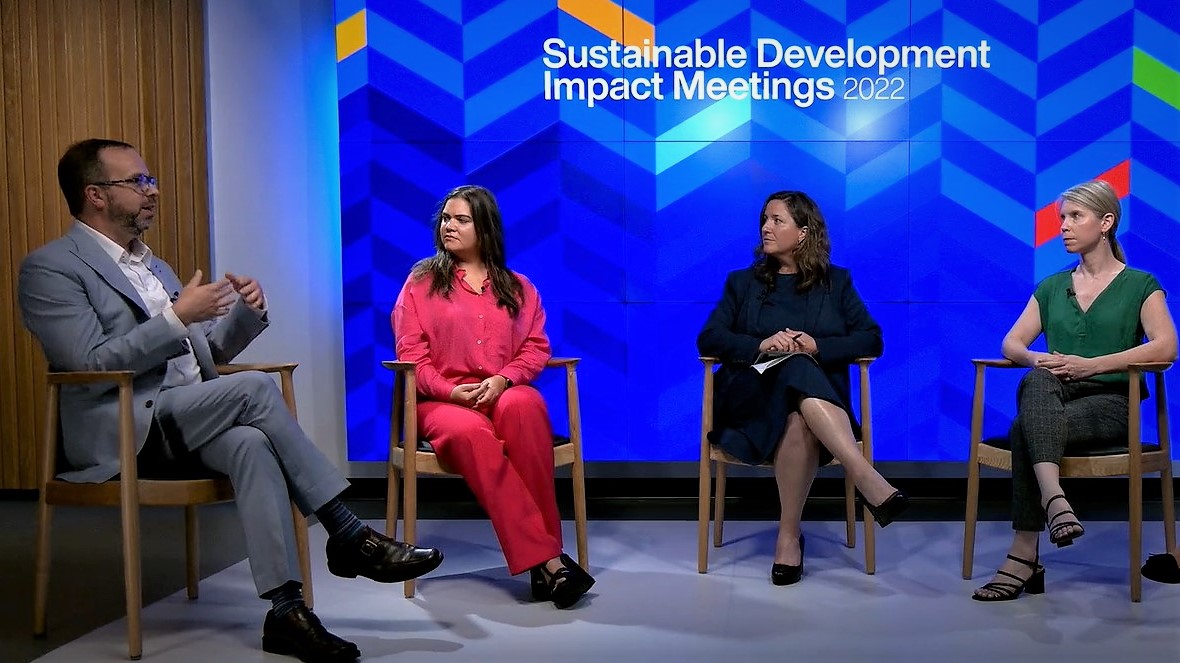The World Economic Forum is launching a new public-private partnership to leverage web3 technologies to better support positive climate outcomes as awareness over blockchain technologies’ impact on the environment picks up steam.
The Switzerland-based non-government organization on Wednesday announced the Crypto Sustainability Coalition, consisting of 30 partners within the intersection of sustainable development and web3, crypto, and blockchain technologies, during a panel held in the U.S.
The coalition plans to support research and development, share best practices, and influence regulation and includes interdisciplinary members spanning from the blockchain platform Solana, to sustainability focused nonprofits such as Climate Collective, to the University of Lisbon.
Crypto technology recently made strides in sustainability, with the Ethereum Merge, reducing the second-largest blockchain’s energy consumption. However, the industry as a whole remains energy intensive. Bitcoin, the largest crypto currency by market capitalization, has an annualized carbon footprint that matches that of the country Greece, and its energy consumption is comparable to that of the United Arab Emirates, according to the Digiconomist Bitcoin Energy Consumption Index.
“The objectives and the ways that the crypto industry needs to decarbonize are quite complex,” said Amy Westervelt, regional director of the Americas at Energy Web, during the online conference. Energy Web builds decarbonization-focused open source, decentralized operating systems. “I think we need collaboration from established NGOs, from climate scientists, utilities, and from those industries that are on the ground, so that we make sure that these really innovative and unique tools that we have are applied in the right direction,” Westervelt added.
When less is better
A primary function of the coalition will be to analyze the crypto industry’s consumption of energy, and materials, to better understand its impact on climate and nature. However, the group also plans to proactively investigate ways in which web3 could help countries achieve lower carbon emission targets.
Blockchain technologies, in particular, are well suited as a home for carbon credit markets, according to Josh Knauer, cofounder of ReSeed Carbon Assets and cochair of the coalition’s working group on carbon credits. Reseed Carbon Assets is a company that sells what it calls “ReSeed Carbon Protection Credits” that are digital tokens pointing to blocks of farm lands where an estimated metric ton of carbon is being stored in vegetation and soil.
Using satellite imagery and artificial intelligence, the purchaser of a carbon protection credit can ensure their ownership of the stored and protected carbon, with price fluctuating on a free and decentralized market, according to the company’s website.
Knauer adds that the blockchain is inclusive and spreads accessibility of carbon markets to even the world’s smallest farmers, forest stewards, and Indigenous communities. “This technology can help in creating coordination, transparency, and efficiency in systems, and can provide more insight and traceability when it comes to action, commitments, and investments,” he said, adding it helps ensure that the farmers themselves are fairly compensated and benefit as the price for carbon increases.
Greener crypto mining
In addition, the Crypto Sustainability Coalition seeks to support more efficient cryptocurrency mining practices as the industry consumes massive amounts of energy to perform transactions. Miner’s decentralized and flexible nature, however, could allow them to only run during off-peak energy times, when less of the electrical grid’s power is consumed by other sources, according Lucia Gallardo, Founder & chief executive officer (CEO) of EmergeFrance.
Additionally, the heat waste from crypto mining machines could be recycled and offer a new business model for utilities and investors looking to develop renewable energy microgrids, said Gallardo. EmergeFrance has worked with clients looking to recycle the heat that emanates from crypto mining, turning it to a source to heat and run water systems for public facilities, she added.
Other key partners of the coalition include information technology company Accenture, Ripple Labs, Inc., the company which develops the Ripple payment protocol and exchange network, and the environmental organization Rainforest Partnership. The coalition will work as part of the Crypto Impact and Sustainability Accelerator (CISA), a grant-funded initiative launched by the World Economic Forum at the start of this year to support knowledge of environmental, social and governance (ESG) impacts of crypto technologies.
“We need open standards, we need to open protocols, we need excellent debate, and exchange, that is what the scientific method is all about, that’s what we’re here to pursue,” said Knauer, adding “then we need larger institutions like the World Economic Forum, like Royal Bank, like commercial banks, like other other investors to come in and help this these solutions to scale.”

